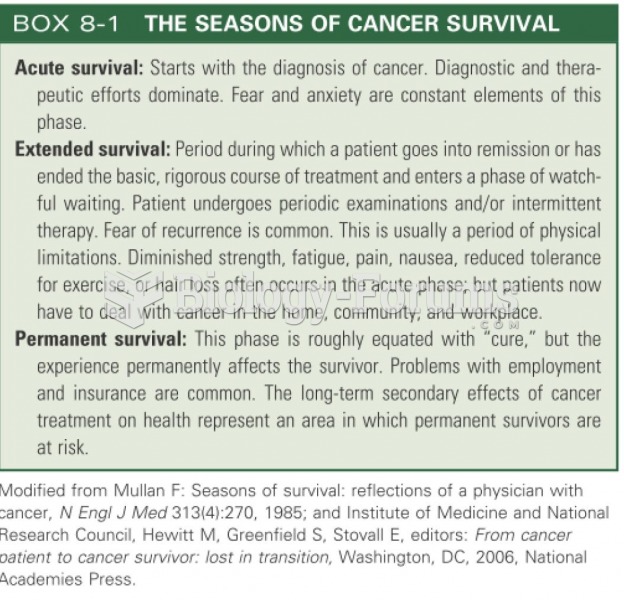Answer to Question 1
Correct Answer: 4
Rationale 1: Testosterone does not have a high affinity for cancer cells.
Rationale 2: Testosterone has no effect on inflammation.
Rationale 3: Testosterone does not destroy cancer cells or decrease nausea.
Rationale 4: Testosterone is helpful in the treatment of estrogen-sensitive breast cancer. It is generally given with other chemotherapy drugs. It works by blocking off estrogen receptors.
Global Rationale: Testosterone is helpful in the treatment of estrogen-sensitive breast cancer. It is generally given with other chemotherapy drugs. It works by blocking off estrogen receptors. It does not have a high affinity for cancer cells, has no effect on inflammation, and does not destroy cancer cells or decrease nausea.
Answer to Question 2
Correct Answer: 1,2,3
Rationale 1: The pituitary gland controls antidiuretic hormone. Disorders of this hormone can cause diabetes insipidus.
Rationale 2: The pituitary gland controls growth hormone. Disorders of this hormone can cause acromegaly.
Rationale 3: The pituitary gland controls oxytocin. Disorders of this hormone can cause delayed delivery or lack of milk ejection.
Rationale 4: The pituitary gland does not control the hormones responsible for the development of Graves disease.
Rationale 5: The pituitary gland does not control the hormones responsible for the development of Addison disease.
Global Rationale: The pituitary gland controls antidiuretic hormone. Disorders of this hormone can cause diabetes insipidus. The pituitary gland controls growth hormone. Disorders of this hormone can cause acromegaly. The pituitary gland controls oxytocin. Disorders of this hormone can cause delayed delivery or lack of milk ejection. The pituitary gland does not control the hormones responsible for the development of Graves disease. The pituitary gland does not control the hormones responsible for the development of Addison disease.







